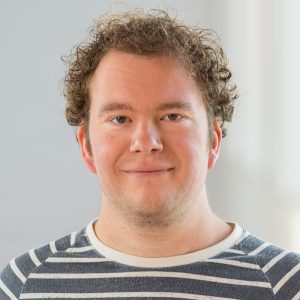
Bart Bloemen, BASc, BA, MSc (Radboud University Medical Centre)
Bart Bloemen holds a BASc in bio-informatics, BA in philosophy and MSc degree in molecular life sciences. Currently, he is a PhD candidate and lecturer in Health Technology Assessment (HTA) at Radboud University Medical Centre, Nijmegen, the Netherlands. He is responsible for coordinating courses in the biomedical sciences and molecular mechanisms of disease curricula that address the relation between science and society, and the epistemological, societal and ethical aspects of health technologies and molecular biology. His research activities focus on the ethics of HTA: normative decisions involved in the conduct of a technology assessment, the interplay between facts and values in such an assessment, and the role of evaluative frameworks such as utilitarianism and the capability approach.
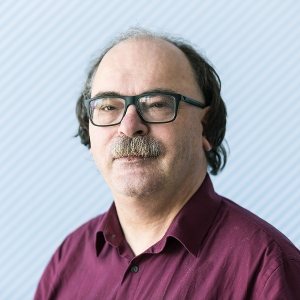
Dr. John Grin (University of Amsterdam)
John Grin is a full professor of ´policy science, especially system innovation´ at the Department of Political Science at the University of Amsterdam. He is co-director (with Marieke de Goede) of the Programme Group Transnational Configurations, Conflicts and Governance, Amsterdam Institute for Social Science Research (AISSR). Between 2006 and 2010, he was scientific director of the then Amsterdam School of Social science Research (ASSR, a predecessor of the AISSR).
John Grin was co-founder (with Johan Schot and Jan Rotmans) of the Dutch Knowledge Network on System Innovations (KSI, 2005-2010) specifically responsible for the KSI sub-programme on governance studies, as well for its interface between research and practice. His current work focusses on the design, governance and politics of system innovations and transitions, especially in the fields of agriculture and food, health and care, and urban energy, water and waste systems. He has been adviser, monitor and evaluator of processes of policy and innovation design for diverse organizations in the Netherlands and elsewhere. He developed and tested (through actual application) methods for interactive technology assessment, vision assessment and reflexive design and has trained several hundreds of academic professionals in such methods.
A physicist by training (BSc, 1983; MSc, 1986), he obtained his PhD (1990) from VU University in Amsterdam on a thesis on technology assessment in the area of military technology and international security. He worked on these issues for another two years at VU University and Princeton University (1990-91). In 1992 he joined the University of Amsterdam.
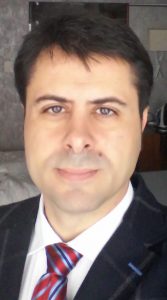
Iñaki Gutiérrez-Ibarluzea, BSc MSc, MSCE, MBE, PhD (Basque Foundation for Health Innovation and Research)
Iñaki Gutiérrez-Ibarluzea holds a BSc and MSc in Sciences and Doctor in Sciences (NeuroScience) from the University of the Basque Country, Masters in Clinical Epidemiology from the Andalusian School of Public Health and Masters in Bioethics from the University Ramon Llul. He was the coordinator of the horizon scanning on life cycle of health technologies of Osteba, Basque Office for Health Technology Assessment. He is the Director of Managerial and Organisational Innovation of the Basque Foundation for Health Research and Innovation. He is currently the President of HTAi (2019-2021) and the Vicechair of EuroScan. Iñaki has advised different HTA initiatives in Argentina, Brazil, Colombia, Costa Rica, Mexico, South Africa, Tunisia, Norway, Israel, EEUU and Italy, WHO-EMRO-WPRO and PAHO regions and WHO medical devices. He is also advisor of the WHO in Universal Health Coverage. Iñaki is also Associated Professor of the School of Medicine and Nursing of the University of the Basque Country.
He is also associate editor of the Frontiers editorial group and the GMS-HiNT journal, both indexed in Medline and a member of the editorial committee in the IJTAHC and European Journal of Public Health. He has been member of the Scientific Committee of the Congress of the European Public Health Association 2019 and 2020 congresses and co-director of the HTA interest group of the same society. Director of two doctoral theses in Public Health with extraordinary award mention and currently responsible for three doctoral theses in the same program. Author of more than 50 publications indexed in Medline and more than 70 HTA monographs.

Dr. Bjørn Hofmann (Norwegian University of Science and Technology)
Bjørn Hofmann is a Norwegian scholar in philosophy of medicine and bioethics with special interest for the relationship between epistemology and ethics. He is affiliated with the Department of Health Science at the Norwegian University of Science and Technology (NTNU) at Gjøvik and the Centre for Medical Ethics at the University of Oslo in Norway. Hofmann is trained in the natural sciences (electrical engineering and biomedical technology), history of ideas, and philosophy. His main subjects and interests are basic concepts for health care (e.g. health; disease, illness, sickness; autonomy; enhancement), norms of knowledge (e.g. Science ethics; knowledge generation; forms of rationality), handling of technology (e.g. HTA; emergence of technology; ethics of technnology) and (bio)medical ethics (e.g. clinical ethics; informed consent; diagnosis and screening).
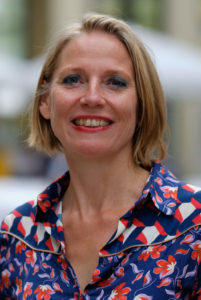
Dr. Wija Oortwijn (Radboud University Medical Centre)
Wija Oortwijn studied health sciences and holds a PhD in Medicine. She is employed at Radboud University Medical Centre, Department for Health Evidence, Nijmegen, the Netherlands, and has 28 years of relevant professional experience in HTA and health policy analysis around the globe. She co-coordinated and participated in several European Commission-funded projects that laid the foundation of establishing a formal basis for HTA collaboration in Europe (i.e. EUnetHTA). She was involved in INTEGRATE-HTA (www.integrate-hta.eu), developing concepts and methods to enable patient-centred, integrated assessments of the effectiveness, and the economic, social, cultural, and ethical issues of complex technologies that take context and implementation issues into account, and coordinated a project to describe the extent to which HTA is aligned with values and principles that underpin health systems. Currently, she is implementing ‘evidence-informed deliberative processes’ (EDPs) in several countries. EDPs provide guidance to HTA organizations to improve their processes towards more legitimate decision-making.
She is a founding member of the Dutch Society for HTA (NVTAG) and HTAi. Currently, she is Vice President of HTAi, is co-chairing the HTAi-ISPOR Good Practices Task Force on deliberative processes for HTA and is associate editor of the International Journal of Technology Assessment in Health Care.
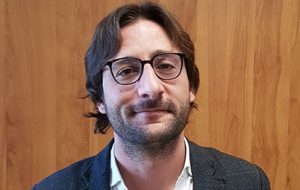
Dr. Pietro Refolo (Università Cattolica del Sacro Cuore, Rome)
Pietro Refolo is a Research fellow at the Institute of Bioethics and Medical Humanities of the Università Cattolica del Sacro Cuore of Rome, Adjunct Professor of Bioethics and Medical Anthropology at Università Cattolica del Sacro Cuore, and Adjunct Professor of History of Medicine at the Saint Camillus International University of Health and Medical Sciences of Rome.
He is coordinator of the Editorial Staff of the Journal “Medicina e Morale. Rivista Internazionale di Bioetica”, and member of two Institutional Review Boards.
His main research interests are: Bioethics, Health Technology Assessment (HTA), History of Medicine, and Medical Anthropology.
He collaborated in several national and European research projects along the last ten years.
He is author of a large number of scientific articles and of two monographs.
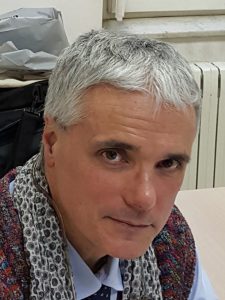
Dario Sacchini, MD, PhD, MA (Ph) (Università Cattolica del Sacro Cuore, Rome)
Dario Sacchini holds a Degree in Medicine and Surgery and a specialization in Clinical Pathology. From 1991 he is full time dedicated to Bioethics, and consequently he had a M.A in Philosophy and a PhD in Bioethics. Currently, he is Associate Professor at the Institute of Bioethics, “A. Gemelli” School of Medicine of the Università Cattolica del Sacro Cuore (UCSC), Rome, Italy. He is coordinator of the Editorial Staff of the international Journal of Bioethics “Medicina e Morale”; reviewer for international journals, and member of four Institutional Review Boards; co-chair of the HTAi/INAHTA Interest Group on Ethical Issues in HTA; visiting professor at Universidad Catolica de Argentia; and corresponding member of the Pontifical Academy for Life.
His main research fields are: ethical analysis in HTA, clinical ethics consultation, and ethics in laboratory medicine. Particularly, he has collaborated in several International Research Projects along the last ten years. He was investigator and reviewer for the “European network for Health Technology Assessment (EUnetHTA) project” (2006-2008); for the “EUnetHTA Joint Action” (2010-2012), and FP6 “Thought in action” (2004-2006). Currently, he is involved as author in “EUnetHTA Joint Action 2” (2013-2015) and he is lead of UCSC Research Unit in FP7 funded Research Project INTEGRATE-HTA. He is author of more than 250 scientific publications and monographies.
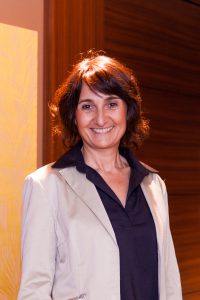
Laura Sampietro-Colom, MD, MScPH, PhD (Hospital Clinic of Barcelona)
Laura Sampietro-Colom is the Deputy Director of Innovation and Head of the Health Technology Assessment (HTA) Unit at the Hospital Clinic of Barcelona, a high-tech hospital and a reference for health care, research and medical training in Spain. In her everyday work she supports clinicians to prove the value for their clinical practice of both health care technologies they are developing and new technologies candidate to be introduced in the Hospital. She was the coordinator of the EU Project Adopting Hospital based Health Technology Assessment (AdHopHTA; 7th Framework Program). Laura has 30 years of experience in Health Technology Assessment (HTA). During all these years, her work has focused on the development, identification, management and transfer of information to advise, public and private organizations, on designing strategies and policies for developing and adopting innovative technologies. She was President of the International Society for HTA and Chair of its Global Policy Forum, where senior representatives from public and private organizations shares strategic discussions on market access and related hot issues. She is currently Chair of the HTAi Latam Policy Forum. She has a long track in teaching and publishing at national and international level in areas related to HTA and innovation. She is a Board member of the Journal of Technology Assessment in Health Care.

Dr. Lars Sandman (Linköping University)
Lars Sandman is professor of health-care ethics and director of the National Centre for Priorities in Health, at Linköping University, Sweden. He is also an ethics consultant for the Swedish National Board of Health and Welfare and part of their ethics council, as well as part of the scientific council of the Swedish Council for Health Technology Assessment and Assessment of the Social Services. Being a philosopher by training, his research has focused on normative issues in healthcare covering a wide range of contexts: palliative care and the good death, elderly care, prehospital care. Lately his main areas of research are priority setting in healthcare, ethics analysis of new health technologies and person centred care/ shared decision-making. As part of boards making reimbursement decisions, he strives to have a close and fruitful mutual interaction between his research and the policy level.

Dr. Gert Jan van der Wilt (Radboud University Medical Centre)
Gert Jan van der Wilt was trained as a neuroscientist at VU University, Amsterdam. During his PhD in neural network analysis, he became interested in the wider implications of grafting fetal tissue in the brain of patients with Parkinson’s disease. He received his training in ethics as a post-doctoral fellow at the Institute of Ethics of VU University (Amsterdam) and as a visiting scholar at the Hastings Center, NY (US). During this period in his career, he investigated normative assumptions underlying evaluation of healthcare technologies.
In 1993, he joined the department of Healthcare Technology Assessment (HTA) at Radboud University Medical Centre (Nijmegen, the Netherlands), where he was appointed full professor of HTA in 2005. He also serves on various committees of the Health Council, the National Research Council and the National Healthcare Institute.
His main research interest is the role of facts and values in HTA. Resent research projects include Whole Exome Sequencing in children with unexplained neurological symptoms, gene therapy in children with congenital retinal disorders, and the impact of cochlear implants on the capabilities of children with congenital deafness.